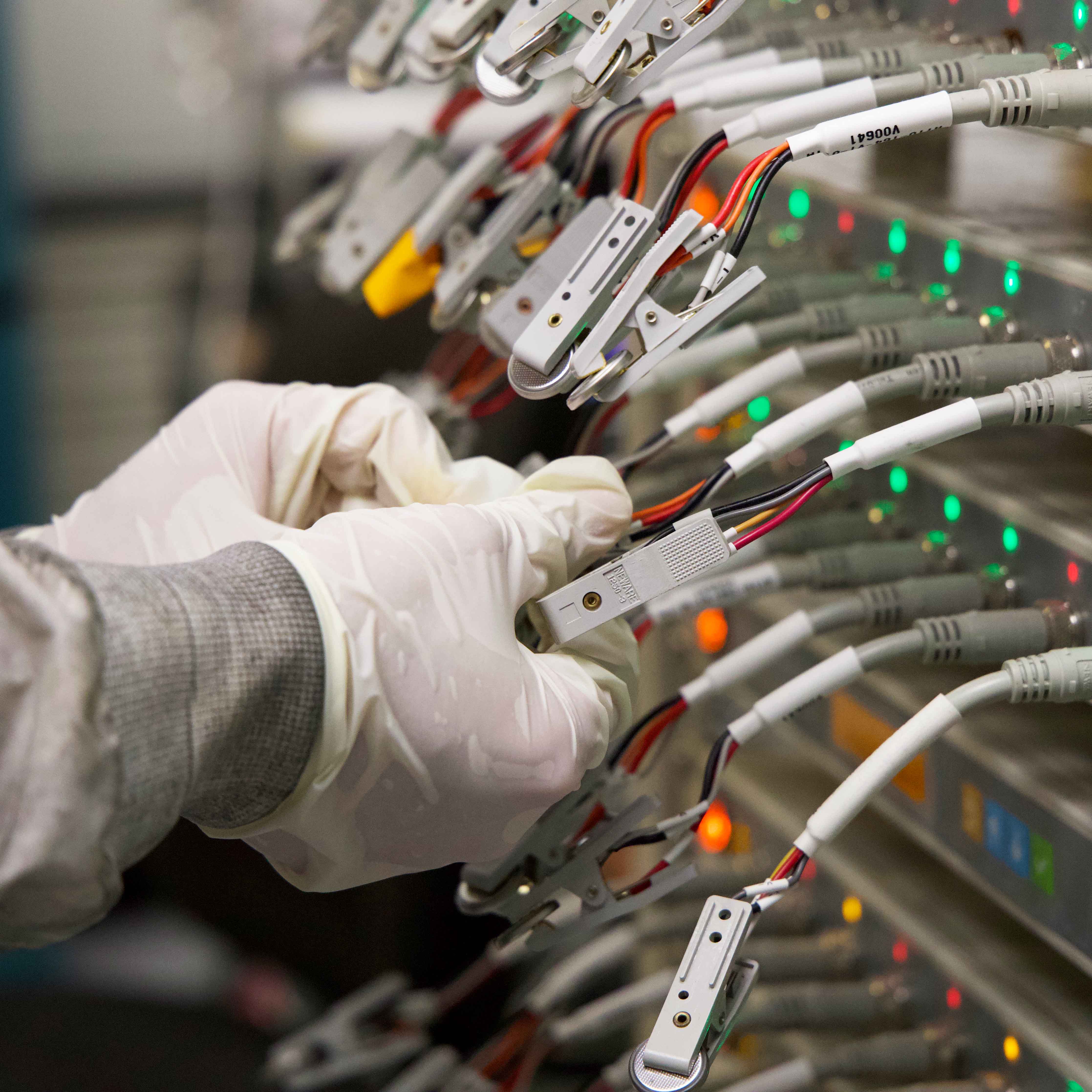News Story
Smela Earns Presidential Early Career (PECASE) Award
Assistant Professor of Mechanical Engineering Elisabeth Smela was the recipient of the highly prestigious Presidential Early Career (PECASE) Award for 2003, presented on September 9, 2004. The award is the highest honor bestowed by the U.S. government on outstanding scientists and engineers beginning their independent careers. Elisabeth was recognized for developing a highly innovative actuator technology, employing dielectric elastomers for microrobotics, flying microdevices, and micromanipulation. Smela was one of the 57 scientists and engineers from across the nation who received the award during a White House ceremony in the Eisenhower Executive Office Building.
The Presidential Early Career Award for Scientists and Engineers, established in 1996, honors those beginning researchers deemed to be the most promising in the nation within their fields. Eight federal agencies and departments annually nominate scientists and engineers, at the start of their careers, whose work shows the greatest promise to benefit the nominating agency's mission. The National Science Foundation, which selected Smela, names the most awardees (20).
Many University of Maryland faculty have won the Presidential Early Career Award. Previous recipients of the PECASE award from the mechanical engineering department include Don Devoe, associate professor of mechanical engineering and Satyandra K. Gupta, associate professor in the department of mechanical engineering and the Institute for Systems Research.
In its announcement of the 2003 awardees, NSF cites Smela for her research to develop a new type of microscopic artificial muscle, or autonomous actuator, technology. Incorporated into micro-electro-mechanical systems (MEMS), this technology could advance new micro robotic devices capable of walking, manipulating or flying. The outcome of her work will have significant impact on the robotics field, the award announcement says. Also noted is Smela's educational program for graduates and undergraduates that allows students to design and build their own microscopic robot ants or other MEMS projects.
For NSF, this year's Presidential Career Awards marked the first time that a majority (12) of its awardees were women. For the University of Maryland, the 2003 award won by Smela is the latest indicator that the university is at the forefront of transformative areas of science and technology and of national efforts to bring the talents of women and other underrepresented groups to bear.
Published September 9, 2004









